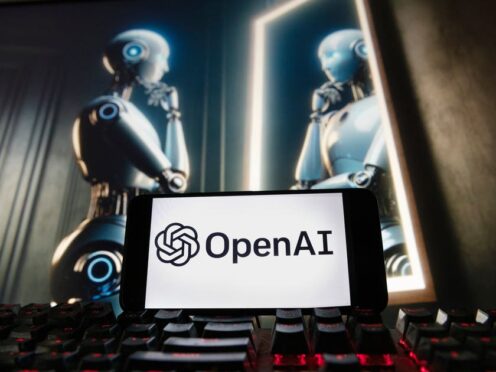The European Union is escalating its scrutiny of the artificial intelligence industry, including taking a fresh look into Microsoft’s multibillion-dollar partnership with OpenAI, a top EU official said on Friday.
The European Commission, the bloc’s executive arm, started reviewing the deal last year to see whether it broke EU merger rules but dropped it after concluding Microsoft had not gained control of OpenAI, Margrethe Vestager, the commission’s executive vice-president for competition policy, said in a speech.
“Microsoft has invested 13 billion dollars (£10.3 billion) in OpenAI over the years,” she said, “but we have to make sure that partnerships like this do not become a disguise for one partner getting a controlling influence over the other.”
She signalled that the commission would take another tack to examine the deal, and the industry more broadly. It is using the bloc’s antitrust rules, which target abusive behaviour by companies that have a dominant market position.
The commission sent information requests in March to big AI players including Microsoft, Google, Facebook and TikTok, reviewed those replies and is “now sending a follow-up request for information on the agreement between Microsoft and OpenAI”, Ms Vestager said.
The EU wants “to understand whether certain exclusivity clauses could have a negative effect on competitors”, she said.
A Microsoft spokesman said: “We appreciate the European Commission’s thorough review and its conclusion that Microsoft’s investment and partnership with OpenAI does not give Microsoft control over the company. We stand ready to respond to any additional questions the European Commission may have.”
OpenAI did not respond immediately to a request for comment.
The stepped-up scrutiny highlights how EU regulators have been pacesetters for the global push to rein in big tech companies, including the major AI players. The EU has led the field with its AI Act, which is set to take effect soon and is the world’s first comprehensive set of regulations for AI.
Ms Vestager said the bloc was also concerned about consumer choices for foundation models, which is the technology that underpins generative AI systems like chatbots.
She said EU regulators have sent information requests “to better understand the effects of Google’s arrangement with Samsung” to pre-install Gemini Nano on some devices from the South Korean tech company. Gemini Nano is the smallest version of Google’s Gemini AI foundation model.
“And we have a number of other preliminary antitrust investigations ongoing into various practices in AI-related markets,” she added.
The commission is also examining so-called “acqui-hires,” where a company buys another one mainly for its talent, such as Microsoft’s hiring of Inflection AI’s founder Mustafa Suleyman, and other top staff.
“We will make sure these practices don’t slip through our merger control rules if they basically lead to a concentration,” she said.
